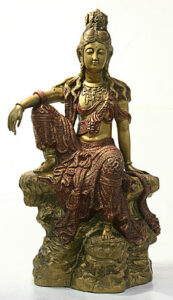

This animal study demonstrates some of the mechanisms behind acupuncture’s effectiveness for asthma including airway inflammation and the hypothalamic-adrenal-pituitary axis. These effects are not unique to asthma, and can help to explain acupuncture’s effectiveness in other immune and inflammatory dysfunction.
Regulation of hypothalamic-pituitary-adrenal axis activity and immunologic function contributed to the anti-inflammatory effect of acupuncture in the OVA-induced murine asthma model.
Abstract
Asthma is a complex inflammatory disease of the airways and acupuncture is one of the effective therapies widely used to treat asthma in China. The aim of the study was to evaluate the regulatory role of acupuncture in airway inflammation and the hypothalamic-pituitary-adrenal (HPA) axis activity in OVA-induced murine asthma model. Our results demonstrated that acupuncture was effective in suppression of AHR, inhibition of total leukocyte, neutrophil, lymphocyte and eosinophil counts in BALF, attenuation of airway inflammation and TNF-α, IL-1β, IL-5 and eotaxin secretion. Furthermore, the HPA axis activity was also regulated by acupuncture, which included promotion of adrenocorticotropic hormone and cortisol secretion in the plasma. Our findings revealed that acupuncture could attenuate airway inflammation and regulate HPA axis and immunologic function in the OVA-induced murine asthma model, which may provide support to better understand the contribution of acupuncture to the regulation of airway inflammation and HPA axis activity in asthma.

